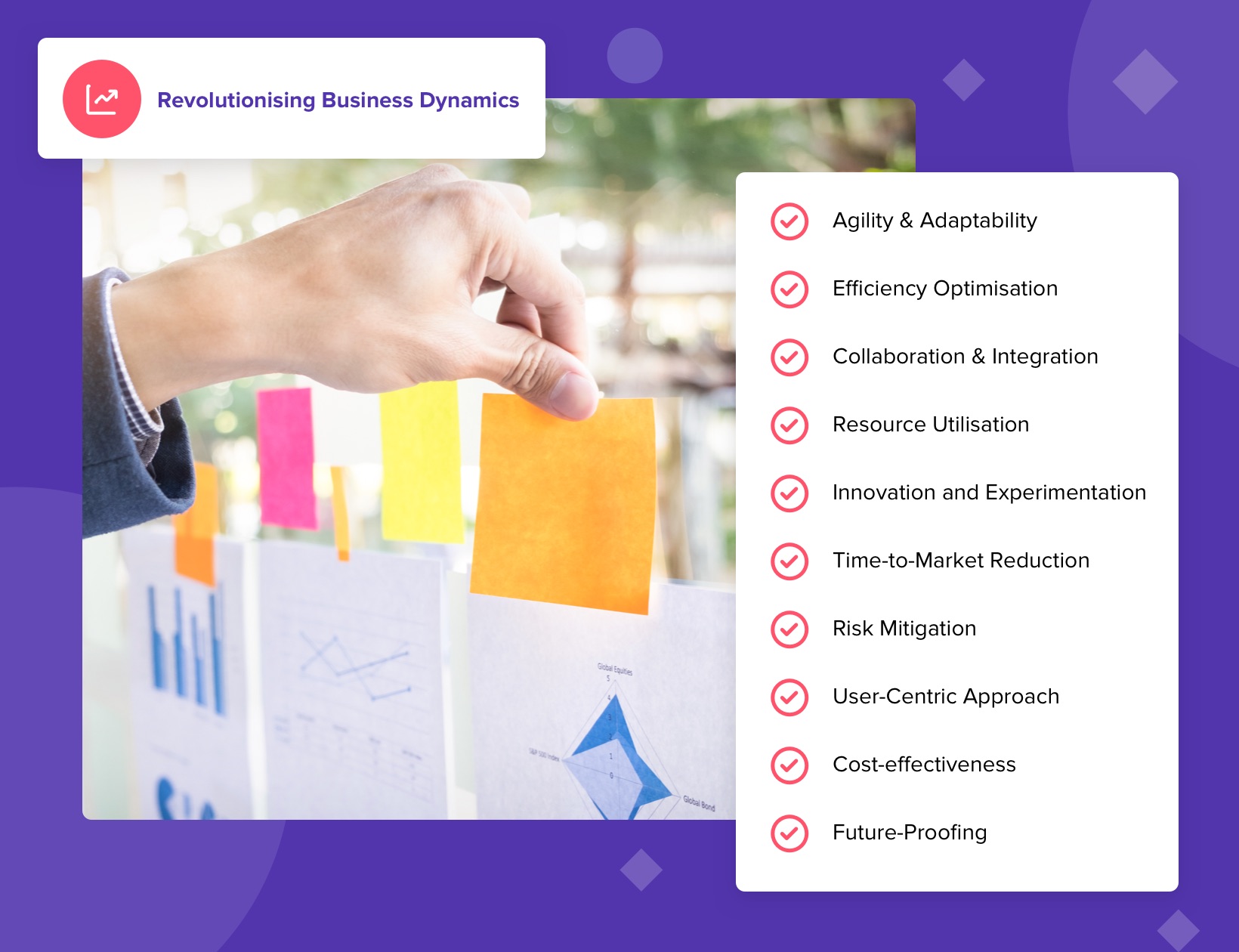Revolutionising Business Dynamics: The Comprehensive Impact of Composable Workflows

Introduction
In the sphere of contemporary business operations, the imperative for adaptability and efficiency has never been more pronounced. At the forefront of this paradigm shift stands the transformative force of composable workflows — an instrumental tool for organisations aspiring to enhance their operational ability, optimise efficiency, and prompt innovation. This blog embarks on an insightful exploration of the multifaceted impact of composable workflows, unravelling their countless benefits and clarifying how these modular systems are reshaping the very fabric of how businesses function.
Agility & Adaptability
Composable workflows emerge as dynamic catalysts, empowering businesses to navigate quickly through the ever-changing currents of the corporate landscape. The modular components that constitute these workflows provide organisations with the agility to promptly adapt to shifting circumstances. In an era where flexibility is not merely advantageous but a business imperative, composable workflows stand out as the key player for fostering adaptability in the face of a dynamic and fast-paced environment.
Efficiency Optimisation
Diving into the details of composable workflows reveals their inherent capacity to deconstruct intricate processes into manageable components, setting the stage for a holistic optimisation of efficiency. By channeling efforts into refining individual components, organisations can achieve a higher level of efficiency that resounds across the entirety of their operations. The modularity embedded in composable workflows serves as a channel for continuous improvement, enabling organisations to evolve iteratively and stay ahead of the efficiency curve.
Collaboration & Integration
Central to the ethos of composable workflows is the cultivation of collaborative ecosystems within organisations. Teams and departments seamlessly collaborate on specific components, transcending traditional silos and promoting cross-functional cooperation. The integration of diverse tools and systems becomes not only seamless but strategic, contributing to the creation of a more interconnected and efficient business ecosystem. This collaborative setting becomes a fertile ground for innovation and collective problem-solving./span>
Resource Utilisation
Effective resource allocation emerges as a cornerstone of successful business operations, and composable workflows provide a framework for achieving precisely that. Leveraging the modular nature of these workflows, organisations can dynamically scale specific components based on demand, orchestrating a finely tuned resource allocation strategy. This strategic approach optimises resource utilisation, decrease wastage and amplifying the overall value derived from each resource.
Innovation and Experimentation
Within the extent of composable workflows, a culture of innovation and experimentation thrives. Teams find an accommodating environment for testing and implementing novel ideas, seamlessly integrating them into existing workflows without disruptive ripple effects. This inherent flexibility not only fosters a creative ethos but also imparts an adaptive approach to problem-solving, setting the stage for a continuous cycle of innovation.
Time-to-Market Reduction
The inherent flexibility of composable workflows translates into a tangible acceleration in the development and deployment of new features or products. This streamlined process enables businesses to navigate the complex journey from ideation to market at an unprecedented pace, securing a competitive edge in industries where time-to-market is an influential factor.
Risk Mitigation
Composable workflows assume the role of a strategic risk mitigation tool by offering organisations the capability to isolate and address issues in specific components without inducing a domino effect across the entire workflow. This compartmentalisation strategy acts as a robust resilience mechanism, significantly reducing the impact of errors or disruptions and fortifying the overall system against unforeseen challenges.
User-Centric Approach
At the core of composable workflows lies a commitment to user-centric design principles. By meticulously designing workflows with modularity in mind, businesses create systems that empower users to customise their experiences according to their specific needs. This user-centric approach not only enhances overall satisfaction but also contributes to heightened productivity and a positive work environment.
Cost-effectiveness
The lean approach to resource allocation inherent in composable workflows culminates in a spectrum of cost-effective benefits. Businesses can strategically optimise costs by allocating resources exclusively to specific components, effectively minimising unnecessary expenses and maximising return on investment. This fiscally responsible approach aligns with broader organisational goals, reinforcing the economic viability of the enterprise.
Future-Proofing
As a business evolves, the dynamic adaptability of composable workflows assumes a critical role in establishing a future-proof foundation. The modular framework allows organisations to seamlessly integrate new technologies, navigate market changes, and scale operations without undergoing extensive and disruptive overhauls. This forward-thinking strategy ensures that businesses remain agile, responsive, and well-equipped to navigate the unpredictable terrains of the modern business landscape.
Conclusion
In the modern business operations, the significance of composable workflows stands resolute. From fostering unparalleled agility and collaboration to optimising efficiency and mitigating risks, these modular systems represent a paradigm shift in organisational dynamics. By embracing the principles of composable workflows, businesses position themselves at the forefront of innovation, ensuring not only survival but flourishing in an era defined by complexity and rapid change. The transformative potential of composable workflows is not merely a technological evolution but a strategic imperative for organisations seeking to chart a course toward sustained success in the dynamic and competitive business landscape.
